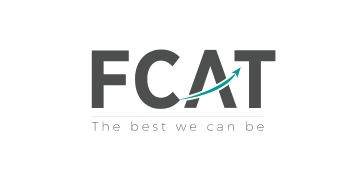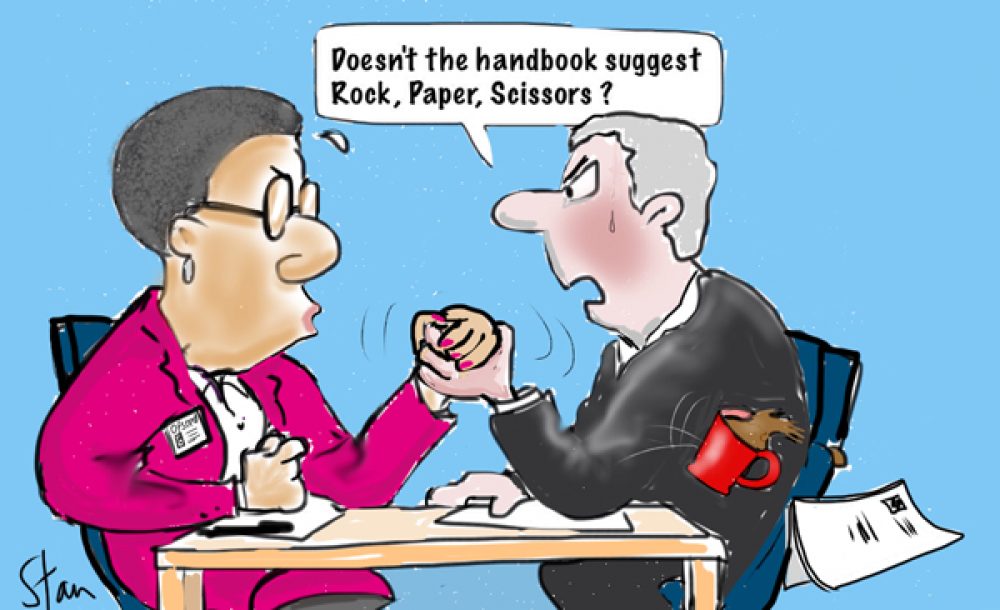– ‘Reliability tests’ will be trialled in Spring inspections
– Two independent inspectors will compare grades
Double visits by Ofsted inspectors are to take place on the same day at schools, following an admission by the inspectorate that not enough has been done in the past to ensure the reliability of judgements.
Ofsted’s national director for schools, Sean Harford, last week acknowledged that the watchdog does not currently ensure different inspectors in the same school on the same day would give the same judgement.
Writing in response to a critical blog by Tom Sherrington, headteacher of Highbury Grove School in North London, Mr Harford said that Ofsted had plans to overcome this issue. He wrote: “I have built in reliability testing for the pilots of the new short inspections this term”.
That testing, Schools Week can reveal, will involve two Ofsted inspectors visiting schools in the upcoming shorter inspection pilots, with both senior inspectors coming to independent judgements.
Ofsted said: “The reliability of the short inspection methodology will be tested during the pilots by two HMIs independently testing the same school on the same day and comparing judgements.”
Ofsted said that inspectors would continue using data as a “starting point” in all inspections.
“However in reaching a final judgement, inspectors consider the information and context of a school, as shown by the full range of evidence gathered during an inspection, including evidence provided by a school.”
The watchdog was unable to give further details of the double inspection process – and it is currently unclear how the findings will be reported.
After learning of Ofsted’s intended reliability test, Mr Sherrington – who wrote the initial blog questioning Ofsted’s credibility – said he would expect there to be frankness from Ofsted about the level of reliability uncovered in the pilot.
“I would expect them to write two full reports, and to do that behind closed doors, while they get things sorted out.
“What I’d then expect is a public report, after the trial, saying what they found from the reliability testing.”
He added: “Schools in the trial must not be left without an understanding of what’s happening, or how the judgement has been decided.”
Colin Richards, emeritus professor of education at the University of Cumbria and himself a former HMI, also questioned how the two senior inspectors would approach their work.
“Would the HMIs separately inspect and compare? Would both inspectors meet the head separately? Would they inspect the same classes or different classes?”
He added: “The critics of Ofsted accept there is a great deal of professional judgement involved and they will want a system that is much more precise and replicable. I don’t think this will meet their criticisms, but it’s worth trying.”
Professor Richards described the decision by Ofsted to end contracts with its three private inspection services providers from September 2015, and to employ schools inspectors in-house as “a step in the right direction”.
Ofsted has said that, from September, it will contract with all its inspectors individually, giving it “greater flexibility and control over the inspection process”.
These in-house inspectors will be trained directly, rather than through intermediary inspection service providers.
The watchdog added: “We are confident that these measures will improve the quality and consistency of our inspection work.”







Subjectivity squared = objectivity?
How many other expensive organisations would have been given years and years to tinker with their methods and yet be still saying that yet another expensive revamp will ‘confidently improve the quality and consistency of our inspection work’!! And to think of all past inspections that might have been flawed by not being quality or consistently delivered. How many schools received reports that could be seriously challenged by the new system.How many schools have been wrongly stigmatised by inconsistent inspections? Dismayed. Phil Tootell
It’s actually heartbreaking when you think about it. Particularly those ruined careers and the heads that have rolled due to subjectivity.
Since Ofsted judgments almost always follow the data anyway, they could have two dozen inspectors in there and it would still be moot. If they want to test the reliability of inspection methodology, they should blind drop the inspectors in, without allowing them to see the data first. Now that I would like to see. No – that I would *pay* to see.
Also, wasn’t there a Harvard study which found that in order for lesson observation data to be reliable in a truly statistical sense, you’d have to have something like 5 highly standardised inspectors observing a teacher teach 4 different classes over 2 days or something. So even this so called reliability measure is to be based on unreliable methodology. Which is beyond parody really isn’t it.
In summary, this is a fabulously facile gesture. We appear to be witnessing the death throes of an institution that has never been fit for purpose, and is proving itself to be beyond meaningful reform. We really ought to put it out of its misery. In an election year, let’s hope that someone at least recognises the electoral case for this idea.
Interesting article, valuable & logical comments. All is much too late for schools & communities that have been disrupted & damaged by politically biased judgements. The untold destruction of what actually happens to schools & their communities in the wake of the governments agenda will never be acknowledged or redressed.
Where an unjust judgement is perceived a second inspection should be a more human way of proceeding rather than setting in motion a series of algorithms.
If a part of the body is is not working well you don’t kill off the patient , you attend to the area in need of care and attention. Ofsted has on occasions condemned whole schools for the weakness of one department, without considering mitigating factors.
In countries where education is highly rated a department in trouble will be supported and helped to raise standards in order to continue to improve. Maybe some good will come out of this next stage if there is a halt to the dismantling of schools to suit the Acadamisation programme!
Unbelievable! As a pharmaceutical professional inspected by the government, ofsted could learn from the MHRA, but they won’t because (as has been said) it’s driven politically, and teachers and students go on suffering. Instead of this ridiculous waste of money, the government needs to start supporting teachers. In any other environment, the systemic bullying of teachers, the constructive dismissal of experienced teachers and the grossly unrealistic expectations on working hours, would not be tolerated, and in a lot of cases would be regarded as illegal. I have managed people for over 25 years and I can safely say that through the whole system of education management is woefully and lamentably short of ability and skills equipped for dealing with adults who work in a unique environment. #educationfarce
Perhaps some form of reliability testing could add some transparency to the inspection process. However there are a number of issues that hopefully will be explained by Ofsted as the policy is debated…
What exactly is going to be compared?
– The overall grade judgement?
– Sub grades? E.g. Behaviour, Leadership?
– The themes within the report?
For the overall grade especially I’m interested to see how this testing could be carried out without the inspectors finding out the others’ judgement before deciding on their own.
Data is not the only factor to determine an overall grade, however will Ofsted pick schools were attainment data is for lack of a better word … inconclusive. Would this be more likely to highlight if there are inspectors who may rely heavily on data?
How will the inspectors be selected? Will it be the most experienced or will it be newer inspectors?
What measures will be put in place to prevent excessive pressure on teachers and heads facing a double inspection?
In those instances were inspectors disagree what grade will the school be awarded with?
I am chair of governors at a school – we had a poor lead inspector (one of many criticisms was the he would not change his schedule so he could meet with me – even though I work full time he expected me to be able to change my work commitments to fit in with his schedule – with less than 24 hours notice!) we took Ofsted to complaints they agreed he was a bad inspector but would not reconsider the judgement – we were judged good – when the year before we had a letter from Osfted telling us we were in the top 1% of schools in the country! QA – Quite Awful.